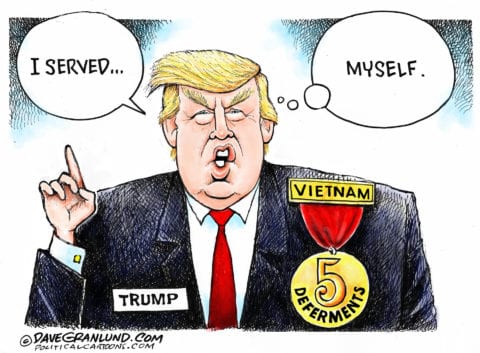BY GARY EDMONDSON
For nearly 50 years, I have remembered my number.
What number, you ask? Ah, you’re showing your youth – and my age.
After years of protests over the unfairness of student deferments which kept collegiate men out of the draft pool for the Vietnam War, the Selective Service System, on Dec. 1, 1969, threw 366 birthdays into a hopper and pulled them out one by one.
I was in college. Our logical reaction was to hold a lottery party to see what fate befell us. I got a good number – not as high as one pal’s 363, but well above the double digits of another friend.
Though the college deferment was unjust, many guys benefitted from college educations they might not have sought otherwise. [It was not quite as effective as miraculous, self-healing bone spurs.]
The unfairness of the years of deferments and the unpopularity of a war where the goal was never military victory eventually led to the end of the draft altogether. Expanding the draft pool to include those who could afford college contributed mightily to ending U.S. involvement in Vietnam.
Even assured of non-service, I considered the demise of the draft a few years later a good thing.
I’m not so sure now. While we can be thankful that Commander Bone Spurs doesn’t have a large standing army to parade around and use to threaten other nations, we did lose a unifying force with the draft’s demise.
During the must-win World War II and through the mandatory conscription of Korea, every young male in the country was subject to the unifying experience of military service. [I remember the gaps and explanations on the backs of my baseball cards.]
Thus, when they returned to civilian life, bosses and workers recognized each other’s humanity. They had something in common.
The result was the post-World War II prosperity that saw the American middle class attain its highest economic status ever. The bosses still lived in bigger houses. But they recognized the worth of their subordinates. They had shared the experience of service and seen the general equality of each other. All boats did rise with that tide of economic growth.
The Vietnam War and its aftermath exacerbated the division between the classes. We lost a common, unifying ground. And some whose luck matched my own assumed divine providence had recognized their specialness.
Thus, when my Boomer generation moved into positions of higher leadership, we saw executive salaries skyrocket while workers’ wages stagnated – for those lucky enough not to be eliminated by objectifying bean counters, who saw numbers instead of human beings in the corporate ledgers.
In 1965, the salary ratio was 20-1 in favor of corporate leaders over regular workers. By 1989, the ratio was 59-1. The last report from a couple years ago varies from 335-1 to 386-1.
Perhaps if some of our “new aristocrats” had experiences beyond their own insulated upbringings they could value people regardless of economic status.
Several Democratic presidential candidates have suggested some form of national service to restore the homogeneity of American society that caste-conscious elitists have worked to destroy.
Last week CNN’s Ryan Prior reported that Pete Buggigieg announced “a new national service program … for all high school graduates.”
Sen. Elizabeth Warren “is calling for a 21st-century version of President Franklin Roosevelt’s Civilian Conservation Corps to restore America’s parks. John Delaney released his own national service plan that included a Climate Corps and an apprenticeship program for young people to work on infrastructure projects.
“Another presidential hopeful, Rep. Seth Moulton, put out a plan that included a proposal for a Federal Green Corps. It’s modeled after the GI Bill and would pay up to $24,000 in tuition or job training for those who worked for a service organization for three years.”
Young men still must register with Selective Service at age 18. Adding young women to the service pool would utilize the same operating systems.
Of course, such proposals would likely face opposition from privatization privateers and their GOP puppets. Imagine, the government taking care of needed services instead of turning them over to campaign donors at many times the cost.
– Duncan resident Gary Edmondson is chair of the Stephens County Democratic Party, which will meet Thursday at 7 p.m. in Room 112 of the Morris Building at Red River Vo-Tech on West Bois D’Arc. Check it out at scdpok.us.







